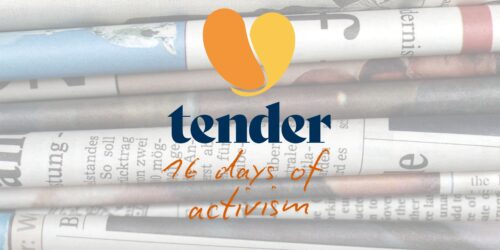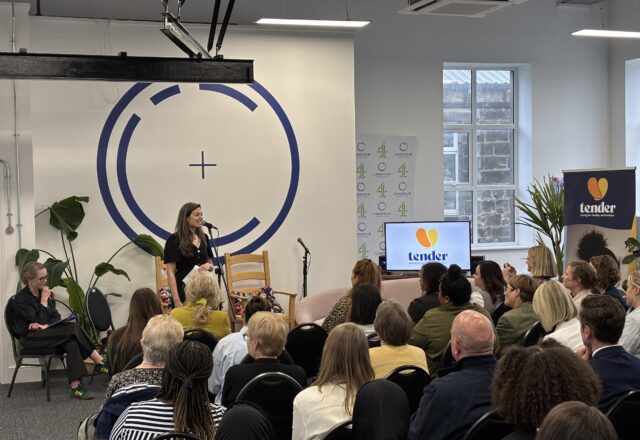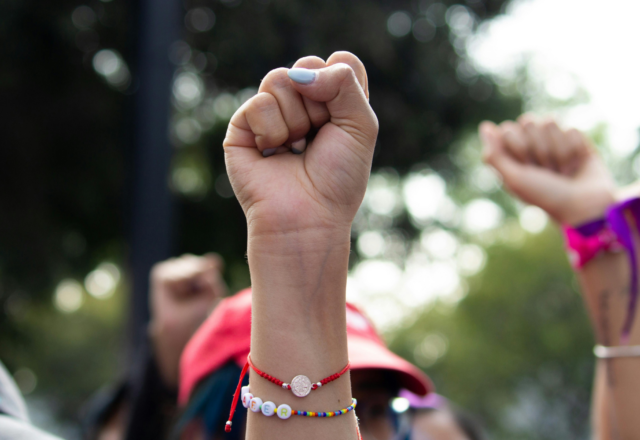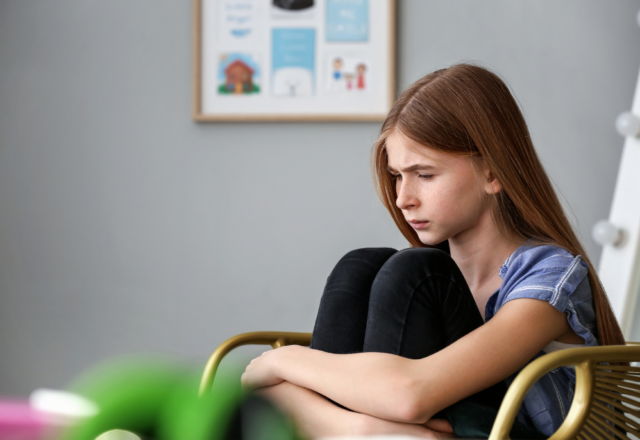Sticks and stones may break my bones but words will never hurt me…or will they? For our 16 Days of Activism campaign, Ottilie from the Tender Youth Board explores the true power of language.
The language we use in our daily lives is important. The language of news reporting is just as important. Language has a direct and immediate effect on its reader: how it makes us feel. Who we believe. Who we sympathise with. Who we villainise.
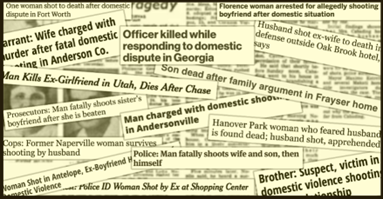
Check out these headlines in Francesca Mirable’s illustration: notice a pattern? Often the victims of domestic abuse and sexual violence are presented as the perpetrator in articles like these. We are also left with a nameless identity – simply ‘ex-girlfriend’, ‘wife’ or even ‘Hanover park woman’ which can repeatedly feel dehumanising.
I believe that all too often various media platforms and reporters aren’t held accountable for irresponsible journalism and the detrimental effects this can cause within different demographics in society – one such group being 16-24 year olds. Whether through victim-blaming, unnecessary details about the perpetrator, use of passive language or lack of accountability, each of these factors plays a part in how the victim(s) are portrayed and how domestic violence is treated as a whole.
Ofcom report ‘News Consumption in the UK’ (2024) found that ‘nine in ten (88%) 16-24-year-olds [are] using online sources for news. Social media is the main driver of this, with eight in ten (82%) young adults using this platform.’ With such high levels of young people using social media for news, these platforms have a duty of care and a responsibility to report accurately and sensitively.
Responsible journalism may encourage a young person to declare their own experience of domestic abuse if they realise what they’re reading actually happened to them. Irresponsible journalism on the other hand can lead to dangerous ideologies that blame women for what has happened to them, or present an oversimplified picture of domestic abuse. Journalism is also a field with time pressures, therefore articles may rely on clickbait titles and buzzwords to draw views, rather than exploring the intricacies of domestic abuse that can range from sexual assault, to financial control and love bombing – which I believe young people need far more information about.
Social media can be used to educate, to effect positive social change, drive political movements and to connect communities, but it is simultaneously a minefield of fake news, inflammatory headlines and people like Andrew Tate. I believe social media becomes particularly dangerous when considering algorithms like the TikTok ‘For You’ page which provides you videos/posts based on what you’re already consuming and what it thinks you want to see more of. Despite claiming not to tolerate hateful ideologies and harmful behaviours, an investigation by The Observer revealed how TikTok is promoting misogynistic videos to young people through the For You page.
Technology companies need to be doing more to protect young people from falling into harmful echo chambers – by monitoring profiles, and where necessary banning creators from holding accounts with them. There is an astounding level of censoring on platforms such as Instagram and TikTok of sex educators and creators posting sex positive content, whilst simultaneously many pages are still able to post and promote harmful content. I have come across various TikTok lives set up by young people solely for the purpose of starting arguments and to bully each other. The screens are black and you can only hear their voices saying horrible things to each other. Whoever came up with the phrase sticks and stones may break by bones but words will never hurt me?
My plea for the 16 Days of Activism campaign is that we become more critical of the news we see online. We encourage young people to do their research beyond one article they read online. We have more in-person conversations with peers, friends and family. We call out and report damaging online content. We educate young people on the dangers of social media and improve their media literacy. And we continue to use our language and actions to strive for the prevention of domestic abuse and sexual violence.
If you are a young person under 19 and are in need of support, please contact Childline on 0800 1111 or visit the Childline website – 24 hours a day, 7 days a week.
